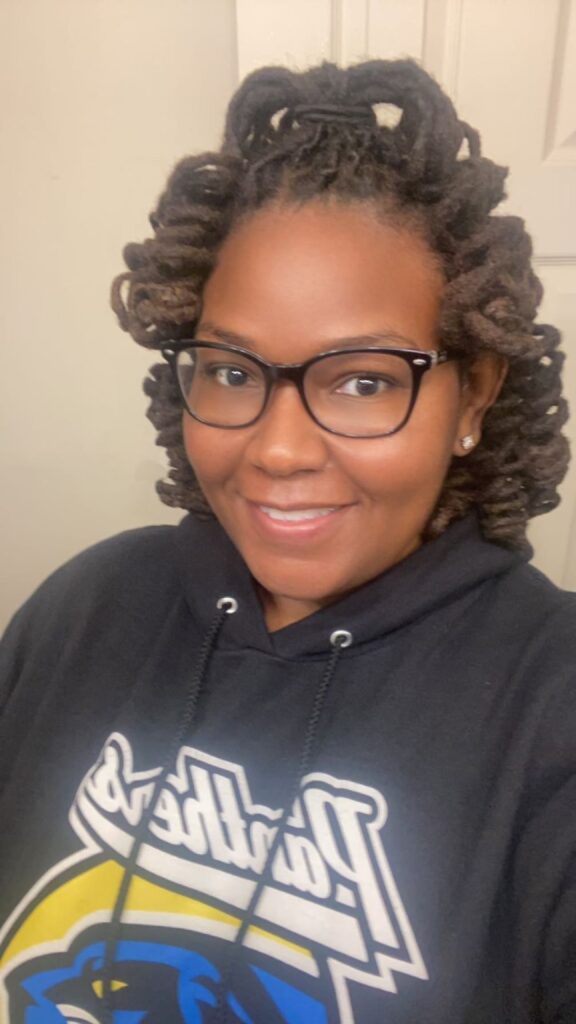For our October spotlight, we’ve headed to KIPP DC College Prep to meet with school psychologist, Latisha Blue.
 Growing up in Washington, D.C., Latisha Blue is no stranger to the neighborhoods surrounding KIPP DC. Now, as a lead school psychologist, she is actively supporting students in her home city with an in-depth of understanding and a shared experience as well as supporting the school psychologists throughout the network. Her approach combines her professional skills with a genuine empathy for the students she serves. “. Despite how challenging things may present, everything becomes worthwhile after seeing the outcomes and responses from the students as well as seeing their growth.”
Growing up in Washington, D.C., Latisha Blue is no stranger to the neighborhoods surrounding KIPP DC. Now, as a lead school psychologist, she is actively supporting students in her home city with an in-depth of understanding and a shared experience as well as supporting the school psychologists throughout the network. Her approach combines her professional skills with a genuine empathy for the students she serves. “. Despite how challenging things may present, everything becomes worthwhile after seeing the outcomes and responses from the students as well as seeing their growth.”
Latisha’s journey into school psychology was inspired, in part, by her own challenges. She didn’t discover her ADHD until later in life—during her training in psychology. “I’ve always had the signs of it, but when you’re intelligent enough and you can adapt to the academic environment, those warning signs can get overlooked. It didn’t impact my learning significantly, but I also wasn’t a huge fan of school as a kid. It didn’t really start to be a concern for me until I started my career that requires a lot of multitasking. Then suddenly it was, ‘How can I do all of these things and organize myself?’”
Navigating the demands of her career helped her realize how she could connect with students who, like her younger self, may struggle in traditional school environments. “All the different learning styles and subtle things that students may struggle with—that may not be understood—I get it,” she shares.
At KIPP DC, Latisha’s role is both challenging and rewarding. Each day, she works closely with our student support teams and school psychologists in the network to assess students’ cognitive and academic skills, social-emotional needs, and to identify educational disabilities that may impact their educational experience. Latisha’s goal is to ensure every student has the resources and support they need to thrive. For her, the relationships with the students are what makes her work truly fulfilling. “The students still come back and visit me, even after their evaluations are completed- whether it’s with homework or adjusting to classroom expectations,” she says. “So there are still ways for me to build those relationships here, and I love connecting with them.”
Latisha’s previous experience in Maryland required her to handle a wide range of responsibilities, from crisis management to risk assessments, largely on her own. At KIPP DC, however, she’s grateful for a team that’s structured to provide comprehensive mental health support—a rarity in education. “It’s not typical to have licensed mental health practitioners and clinical psychologists on staff,” she notes, “but KIPP builds a lot around mental health, and I love it.” This focus allows her to dive deeper into her specialty and support students with greater attention and care, a shift that came at the perfect time as she was moving back to the D.C. area.
Latisha’s story is a testament to how personal experience and professional skill can come together to support students in ways that go beyond the typical academic experience. For her, being able to work with students in her home community—while helping them navigate some of the same challenges she has faced, is very rewarding. She left us with a final message, “Nothing is impossible. You may have to think of ways to adapt to it or you may have to change some things to reach those goals. But nothing is impossible.“
